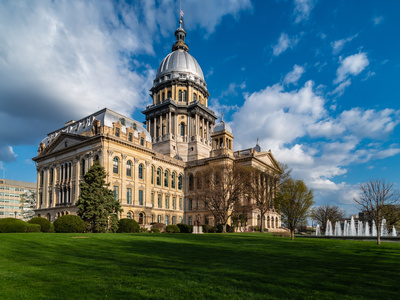-000055-400px.jpeg)
Tax & Budgets, Health Care & Wellness
Here’s How States Are Responding to Trump’s One Big Beautiful Bill Act
October 8, 2025 | Abbie Telgenhof, Morgan Scarboro
January 25, 2024 | Ryan Maness

Key Takeaways:
New York has unique budget procedures and understanding it can be difficult. Here is a primer on how the process works:
The New York budget kickoff happens at the beginning of the session when the governor delivers a budget address to the legislature. In the speech, the governor outlines the broad strokes of their fiscal agenda. There is no statutory requirement for the timing of the speech, but it usually happens in mid to late January (this year it was February 1).
At any time within thirty days of submitting the executive budget and budget bills to the legislature, the governor may amend or supplement the financial plan or any of the bills. These changes to the executive's budget proposal are known as 30-day amendments. After this period, the governor must obtain approval from the legislature to make further amendments. Why would the governor offer a 30-day amendment? Reasons may include pressure from the legislature or new economic circumstances.
By the end of February, each legislative chamber will offer its own version of the budget with "One House Amendments." These amendments represent the fiscal preferences of the majority caucus in each individual chamber. One convenient aspect of the way New York drafts the budget bills is that each policy proposal gets its own bill section. If a policy is stripped out during the amendment process, then the now empty bill section will say, "Proposal Removed." This makes it easier to track what provisions are still a going concern.
The bills then go through the normal legislative process of hearings and floor debate. After both chambers have passed their versions, they will go to a conference committee to resolve any inter-chamber differences. The big decision, however, comes when the Senate President, the Speaker of the House, and the governor all gather behind closed doors to finalize negotiations.
The final budget is due by March 31, the end of New York's fiscal year. While late budgets are relatively common in other states, New York has tended to pass its budgets on time.
Several factors will complicate New York's budget negotiations this year. First, Governor Hochul's relationship with her legislative colleagues has become increasingly strained in the last several months, with a recent flurry of vetoes and the governor's efforts to push through her housing agenda weighing particularly heavily. Legislators have shown less deference to the executive branch in the budget process since former-Governor Andrew Cuomo's (D) departure and Democrats' legislative supermajorities have given them increased leverage to advance their policy agenda.
Additionally, New York is facing a landmark multi-billion budget gap, which will increase the pressure on the Empire State's fiscal planning. In the face of this deficit, the politics of whether to raise taxes and what programs to fund becomes much trickier, the chances that the budget goes late become higher, and the prospect for a more aggressive budget package increases.
Tax policy can be one of the most challenging areas for government affairs executives. MultiState’s team understands the issues, knows the key players, and helps you effectively navigate and engage. We offer a customized, strategic solution to help you develop and execute a proactive multistate tax legislative agenda. Learn more about our Tax Policy Practice.
-000055-400px.jpeg)
October 8, 2025 | Abbie Telgenhof, Morgan Scarboro

August 5, 2025 | Morgan Scarboro

July 30, 2025 | Bill Kramer